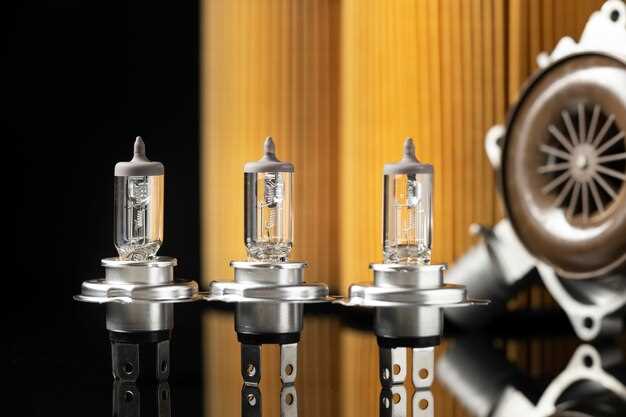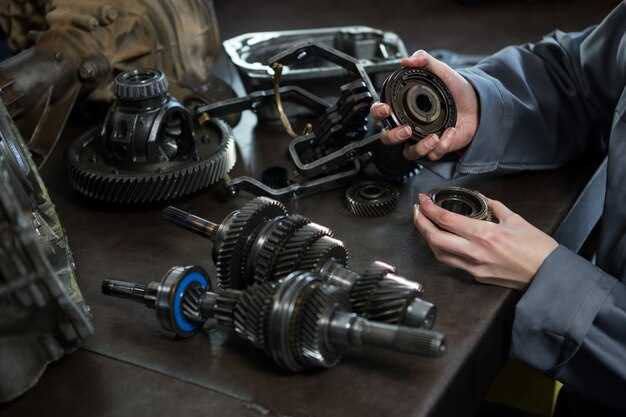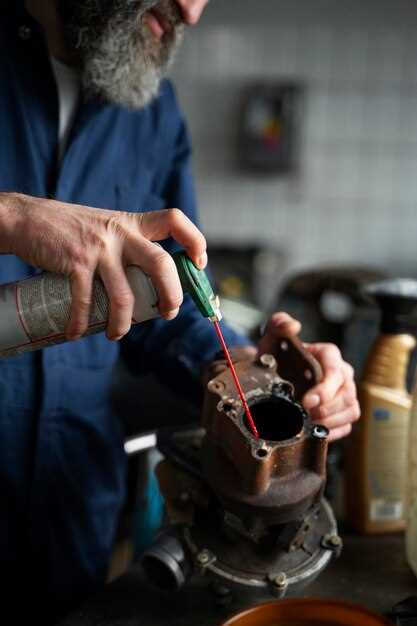
In the realm of automotive enthusiasts, the practice of swapping modern engines into classic cars has gained significant traction. This trend is driven by a desire to enhance performance, improve reliability, and incorporate cutting-edge technology into beloved vintage vehicles. However, while the advantages are numerous, there are also substantial drawbacks to consider before embarking on such a transformation.
One of the primary benefits of upgrading to a modern engine is the substantial improvement in power and efficiency. Newer engines often utilize advanced engineering and materials, resulting in increased horsepower and torque, as well as better fuel economy compared to their classic counterparts. This can transform the driving experience, providing a balance between nostalgia and contemporary performance.
Nevertheless, the swap is not without its challenges. The integrity of the classic car’s originality may be compromised, which can diminish its value to purists and collectors. Additionally, the complexity of integrating a modern engine into a classic chassis raises concerns about compatibility, emissions regulations, and the overall cost of the conversion. Enthusiasts must carefully weigh these factors and consider the long-term implications of their decision.
Swapping Modern Engines in Classic Cars: Pros and Cons
Swapping a modern engine into a classic car has become a popular trend among automotive enthusiasts. This practice brings both advantages and disadvantages that should be thoughtfully considered before undertaking such a project.
Pros
- Increased Performance: Modern engines often provide more horsepower and torque, resulting in improved acceleration and overall performance compared to outdated powertrains.
- Fuel Efficiency: Newer engines typically feature advanced technologies, such as direct injection and turbocharging, which can significantly enhance fuel economy.
- Reliability: Modern engines are built with improved materials and engineering techniques offering greater reliability, reducing the likelihood of breakdowns and maintenance issues.
- Availability of Parts: Replacement parts for modern engines are generally more accessible and affordable than those for older engines, making repairs and maintenance easier.
- Upgraded Technology: Swapping in a contemporary engine provides the opportunity to incorporate advanced features like electronic fuel injection, stability control, and improved emissions standards.
Cons
- Loss of Originality: Upgrading to a modern engine can significantly alter the character of a classic car, potentially detracting from its historical value and appeal to collectors.
- Complex Installation: The process of swapping engines can be complicated and may involve custom fabrication of engine mounts, wiring harnesses, and exhaust systems.
- Cost: While modern engines can be more reliable, the upfront cost of purchasing an engine, along with associated parts and labor for installation, can be substantial.
- Legal and Regulatory Issues: Depending on local laws, there may be regulations regarding emissions and modifications that could complicate the engine swap process.
- Impact on Value: Depending on execution, a modern engine swap can either enhance the car’s value as a performance vehicle or diminish it if perceived as a poor modification by purists.
In summary, swapping modern engines into classic cars offers notable benefits such as enhanced performance and reliability, but it also poses challenges including potential loss of originality and cost implications. Enthusiasts must weigh these factors carefully to make an informed decision.
Understanding the Technical Challenges of Engine Swaps

Engine swaps can be an exciting way to enhance the performance of classic cars, but they come with a unique set of technical challenges that must be carefully considered.
Compatibility Issues: One of the primary challenges is ensuring that the new engine is compatible with the existing drivetrain and vehicle architecture. Different engines have varying mounting points, dimensions, and weight distributions. You may need custom engine mounts or modifications to the engine bay to accommodate the new power unit.
Wiring and Electronics: Modern engines often come equipped with sophisticated electronic control units (ECUs) and wiring harnesses that differ significantly from those of classic vehicles. Integrating these modern components may require detailed knowledge of both the old and new systems, potentially leading to electrical issues if not executed correctly.
Cooling System Modifications: Many modern engines operate at different temperatures than older engines. The original cooling system may not provide adequate cooling for the swapped engine. Upgrading the radiator, hoses, and even the fan may be necessary to ensure optimal temperatures and prevent overheating.
Transmission Compatibility: If the new engine’s power output significantly exceeds that of the original, the transmission may also require replacement or upgrading. Ensuring that the transmission can handle the increased torque and horsepower is essential for overall performance and reliability.
Regulatory Compliance: Depending on the jurisdiction, engine swaps may face regulatory challenges, including emissions standards and inspections. It is crucial to familiarize yourself with local laws that apply to engine swaps to avoid legal complications down the line.
Understanding the Driveability: After the installation, tuning the engine for optimal performance can be a complex process. Achieving proper fuel mapping and ensuring smooth driveability may require specialized tuning equipment and software, especially if the new engine utilizes advanced technology like turbocharging or variable valve timing.
In conclusion, while an engine swap can breathe new life into a classic car, it is vital to carefully consider the technical challenges involved. Proper planning, knowledge, and expertise are essential to navigate these challenges and achieve a successful conversion.
Evaluating the Impact on Vehicle Value and Collectibility
Swapping modern engines into classic cars can significantly influence their market value and collectibility. While some enthusiasts view this modification as a way to enhance performance and reliability, others see it as a detractor from the vehicle’s original character and historical significance.
One prominent advantage of swapping to a modern engine is the potential increase in usability. Classic cars, often equipped with outdated technology, can be less practical for everyday driving. Installing a contemporary engine can improve fuel efficiency, reduce emissions, and offer better performance, making the vehicle more appealing to a broader audience. This can lead to an appreciation in resale value, particularly among buyers seeking a combination of classic aesthetics with modern reliability.
Conversely, the impact on the classic car’s collectibility can be detrimental. Many collectors prioritize original authenticity and historical integrity. A modified vehicle may lose its unique historical narrative, potentially diminishing its value in the eyes of purists. This trend is particularly evident in rare or highly sought-after models where originality can significantly enhance desirability. The more modifications made, the less likely it is that the car will retain its original selling price or appreciate over time.
Market perception also plays a critical role in determining how a swapped engine affects value. If the modifications are performed tastefully and with quality components, the vehicle may attract a niche audience willing to pay a premium. However, poorly executed swaps can lead to negative sentiments among potential buyers, impacting the overall value negatively. Documentation of the swap process, showcasing professional workmanship, and maintaining records can help mitigate concerns regarding quality and authenticity.
Ultimately, the decision to swap a modern engine in a classic car involves weighing the desire for modern performance against the preservation of value and collectibility. Enthusiasts must carefully consider their priorities when deciding on modifications, as these choices will significantly influence the vehicle’s standing in the collector market.
Assessing the Legal and Regulatory Considerations

Swapping modern engines into classic cars presents a range of legal and regulatory challenges that enthusiasts must navigate to ensure compliance with local laws. The foremost concern is the vehicle’s emission standards. Many regions have strict regulations regarding air quality, which can impact the legality of an engine swap. Classic cars often held less stringent emissions norms, and installing a modern engine could necessitate meeting current emission requirements, including obtaining necessary certifications.
In addition to emissions, safety standards pose another significant hurdle. Depending on the jurisdiction, a modern engine swap may require modifications to various safety systems, such as brakes and suspension, to maintain compliance with safety inspections. Some areas mandate that all vehicles meet specific safety equipment regulations, potentially complicating the resale process.
Another legal aspect to consider is insurance. Depending on the extent of modifications made during an engine swap, insurers may reassess the vehicle’s value or categorize it differently, impacting coverage and premiums. It’s crucial for owners to inform their insurance provider about any changes made to ensure proper coverage and avoid potential legal issues in the event of an accident.
Furthermore, registration can involve additional scrutiny. Certain jurisdictions may require that modified vehicles undergo inspections to verify that they comply with state laws. This can include checks for VINs to ensure that the vehicle retains its originality in critical aspects or meets the standards appropriate for the new engine type.
Lastly, understanding the implications of warranties and liability issues is vital. Using components from different manufacturers could affect the warranty status of the car’s new parts or lead to liability in case of mechanical failure or accidents. Owners should research and understand any potential impacts related to the choices made during the engine swap process.
